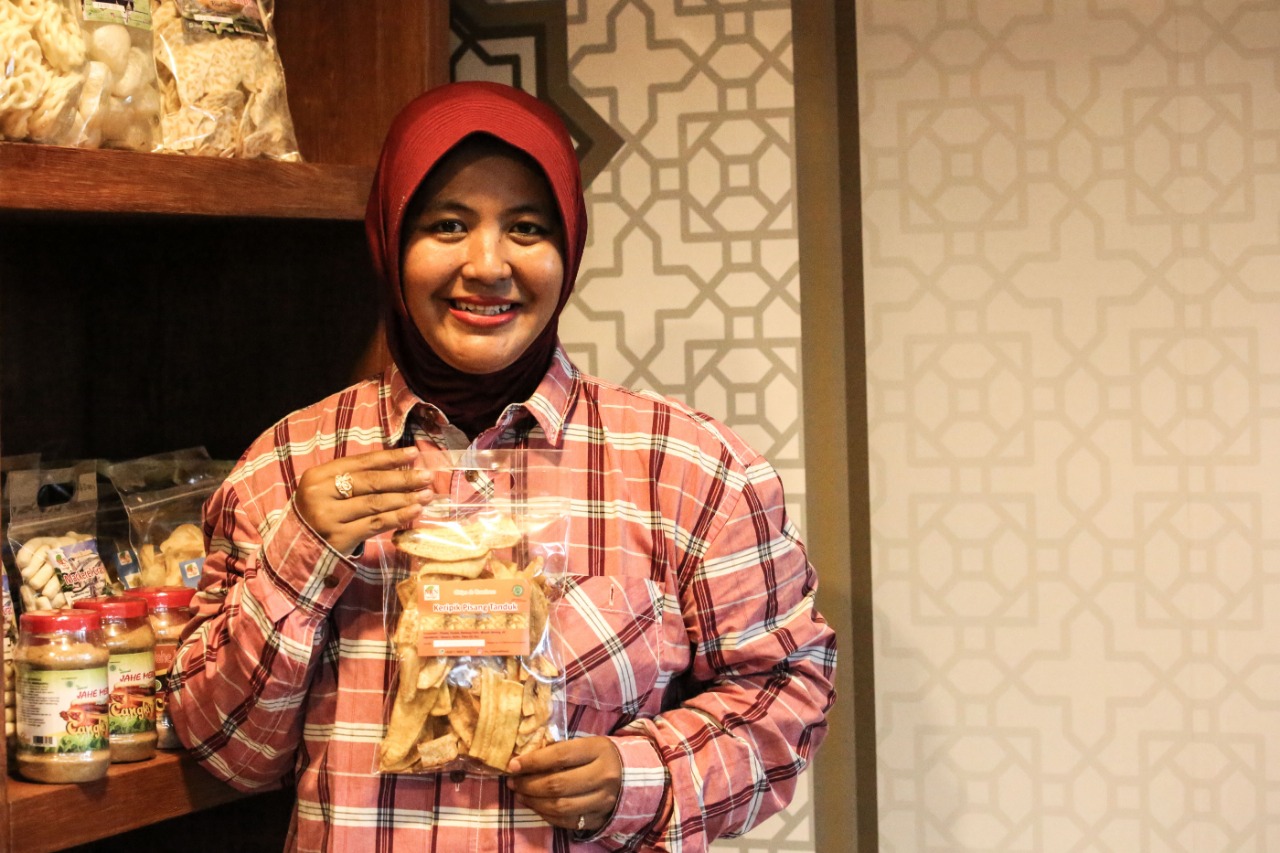
Pertamina Supports ESG by Appreciating Women MSEs’ Role in Developing MSEs Towards Global Stage
Jakarta, 22 April, 2021 – The momentum of Kartini Day can be interpreted as an effort to respect women in every aspects of life. One of them is the Indonesian heroines who have contributed to help Indonesia’s economic independence through Medium and Small Enterprises (MSE). Through Partnership Program, PT Pertamina (Persero) creates a place where women entrepreneurs try to become MSEs which are upgraded.
Senior Vice President of Corporate Communications & Investor Relations of Pertamina, Agus Suprijanto, explained that from the total of 65.000 Pertamina’s fostered parters from 1993 to 2020, nearly one-third of them are owned by women. “There are approximately 22 thousand women entrepreneurs of Pertamina’s fostered partners who also become the foundation of the national economy,” he said.
Agus added that from the total number, 4.126 of them joined Pertamina’s Rumah BUMN (RB) which are spread over 30 points throughout Indonesia. This huge amount could not be squandered. Through several MSE upgrade programs, Pertamina provides training, mentoring, and business certification.
The impact is visibly evident. In 2020, there are 672 fostered women who have successfully developed its market both domestically and internationally. “This achievement is inseparable from their commitment to the environment contribution. It is in the form of providing employment for housewives and women of powerless groups,” said Agus.
This is in line with the implementation of the 8th Sustainable Development Goals (SDG), which is to provide decent work and support economic growth. It is also in line with Environment, Social, & Governance (ESG) in social sector. Pertamina believes that it can consistently generate economic benefits for people according to environmental and social responsibilities.
Without setting aside their nature as a wife and a mother to their families, women today can drive the familiy’s economy. Both as an economic support and the main breadwinner of the family. Many women have taken the role of helping the head of the family in supporting the family. “Pertamina gives big appreciation for all the efforts of these heroines,” he stated.
Nurjannah is one of the beneficiaries of Pertamina Partnership Program who owns Batik Mayana MSE in Ternate. The figure of this disabled woman is very special. Her enthusiasm to benefit others especially the disabled is very burning.
“Me and my husband are disabled. However, I want to learn about business, in 2013 in the culinary field. Many of my friends are curious of how I am able to run a business with my condition. Finally, I have also made a training for people with disabilities,” said Jannah.
Now, she is expanding her business by producing Mayana ecoprint Batik. Nurjannah empowers around 32 people with disabilities to help her business. Not only that, she also helps school dropouts and widows around her neighborhood. It makes her business receive a turnover of hundreds of millions with products that have successfully penetrated the international market.
Another incredible figure of Pertamina fostered partner is Nurchaeti. The owner of this N&N Internasional business deserves to be an inspiration to other women. Her persistence in looking for funds led her to become a successful woman entrepreneur as she is today.
Nurchaeti was a former Indonesian Workers (TKI) who worked in Singapore for quite a long time. After returning to Indonesia, she tried several businesses such as laundry business, until now she is firmly in the culinary business. “It turns out that the selling margin of culinary business is big,” said Nurchaeti.
Sure enough, with a capital of IDR 100 thousand to buy bananas and other ingredients. Nur’s business is slowly starting to shine. Until, at the end of 2015, Nur met a chip distributor in Brunei Darussalam at an exhibition. Interested in Nur’s product, they agreed to collaborate to market Nur’s product in Brunei. Eventually, Nur’s banana chip product is booming in that country.
Started as a home business, Nur currently has a workshop in Karawang, West Java. There she has around 260 workers to help the process of her banana chip production. By carrying out a sociopreneur-based business, she uses the service of many elderly former TKI, especially mothers.**